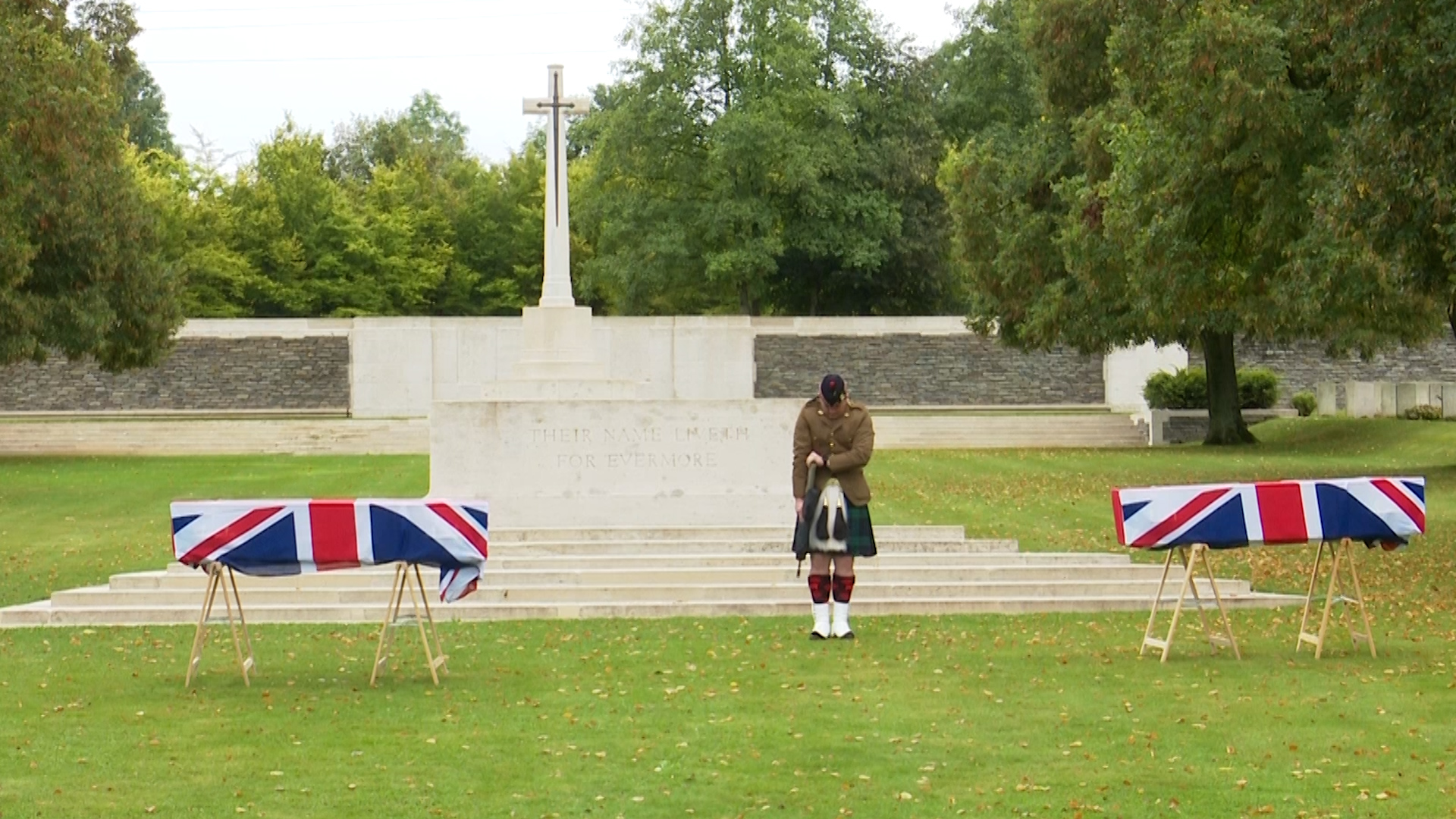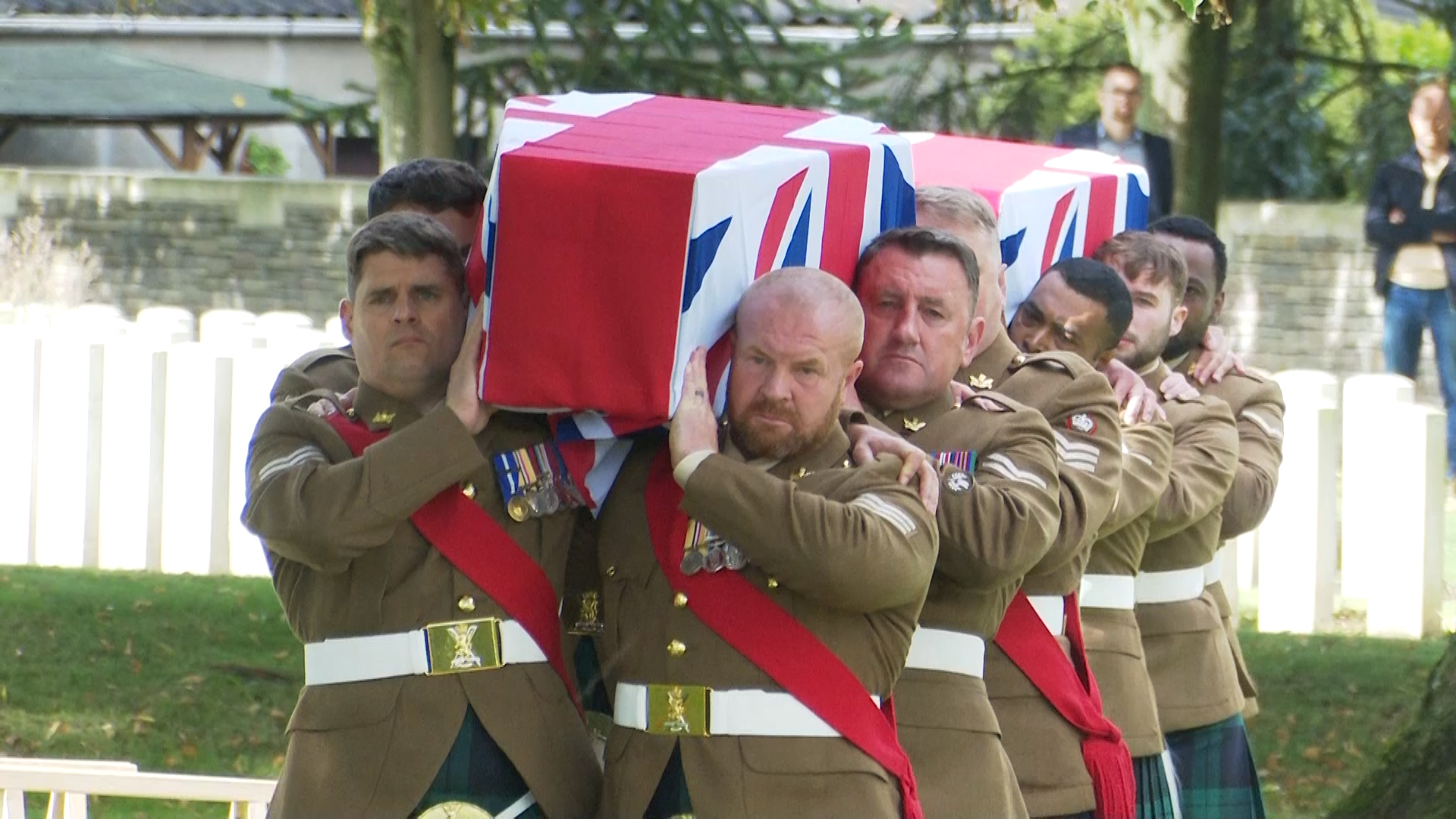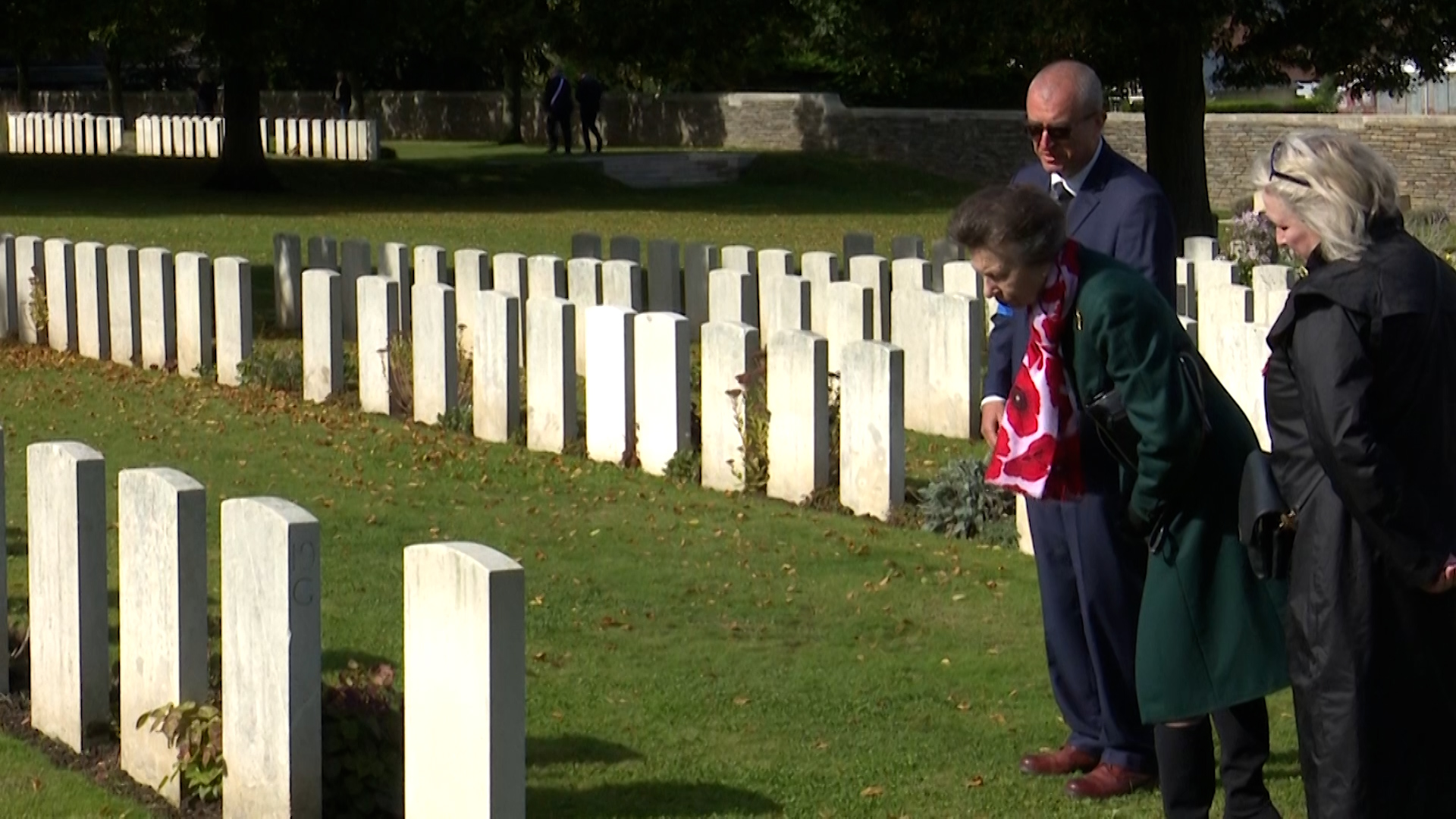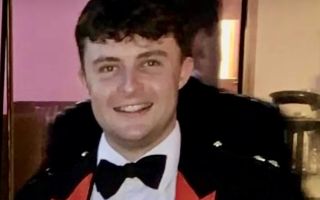
Gathering for burial to honour unknown soldiers and reflect on loss in Loos

Royalty, ambassadors, admirals, generals and international dignitaries aplenty gathered in Loos to witness the formal burial of two unknown soldiers more than 100 years after they died.
One of them served in The Black Watch and it was fitting that members of the Royal Regiment of Scotland took part in the burial service.
I have seen many military burials and this one was the same – but different.
The same because reverence, dignity and formality remain, but different because, although evocative and emotional, no family members attended and no one knew these soldiers.
Why did hundreds, including two couples from Ontario, Canada, come to witness this burial service?
Was it because Captain The Honourable Fergus Bowes-Lyon (the late Queen Mother's brother), served in The Black Watch, and was killed in the Battle of Loos?
Or because Rudyard Kipling's 'My Boy Jack' also died in the same battle? Or perhaps Beatles fans wanted to see George Harrison's grandfather's grave – he died on the first day of the battle of Loos.

I attended because I served in The Black Watch and Royal Regiment of Scotland.
When serving at Regimental Duty, I spent years looking at a powerful painting of the Battle of Loos; it was known as 'Porridge' because the terrain was such a quagmire – every soldier's worst nightmare.
I recall the portrait of the Queen Mother, Colonel in Chief of The Black Watch for more than 60 years, sharing the same walls as 'Porridge'; cementing the regimental family connection.
More than half a million soldiers are still missing from the First World War and over a third are thought to be buried as unknown.
More are being discovered all the time through agricultural work and building development (in Loos, a new hospital is being built).
The Commonwealth War Graves Commission have a rapid response team which deploys within two hours and aims to recover the remains within three to six hours.
This remarkable capability shows the commitment to honour the fallen appropriately.
Honouring the fallen is at the heart of what the Joint Compassionate and Casualty Centre do.
Often called the 'war detectives', the team diligently and forensically research all the evidence to try to identify who the fallen are.
They painstakingly build a picture that sometimes leads to them connecting families with their lost relative.
I saw this at a remarkable reunion of a Second World War casualty with his family in Sicily.
The hundreds attending the burial service in Loos will all have had their own personal motivations for being there.
Binding us all together is the commitment to honour those who made the ultimate sacrifice so we may enjoy our freedom.

Geopolitics, war and conflict make it vital for us all to take time to reflect and remember the staggeringly significant sacrifice of millions who fought and endured war.
The scale is difficult to comprehend.
The reburial of these young soldiers from the First World War reminds me of our collective responsibility, set out beautifully in John McCrae's poem In Flanders Fields, to honour the fallen – whenever and wherever – they fell.
"To you from failing hands, we throw
The torch; be yours to hold it high.
If ye break faith with us who die
We shall not sleep, though poppies grow
In Flanders fields."
Finally, even though we don't know the names of so many who sleep in Flanders Fields, they are like us and we will remember them:
"…Short days ago
We lived, felt dawn, saw sunset glow,
Loved and were loved, and now we lie,
In Flanders fields."
Mr MacDuff is a retired colonel and was a member of the Black Watch, now part of the Royal Regiment of Scotland. He now works at BFBS as part of the Creative team.









